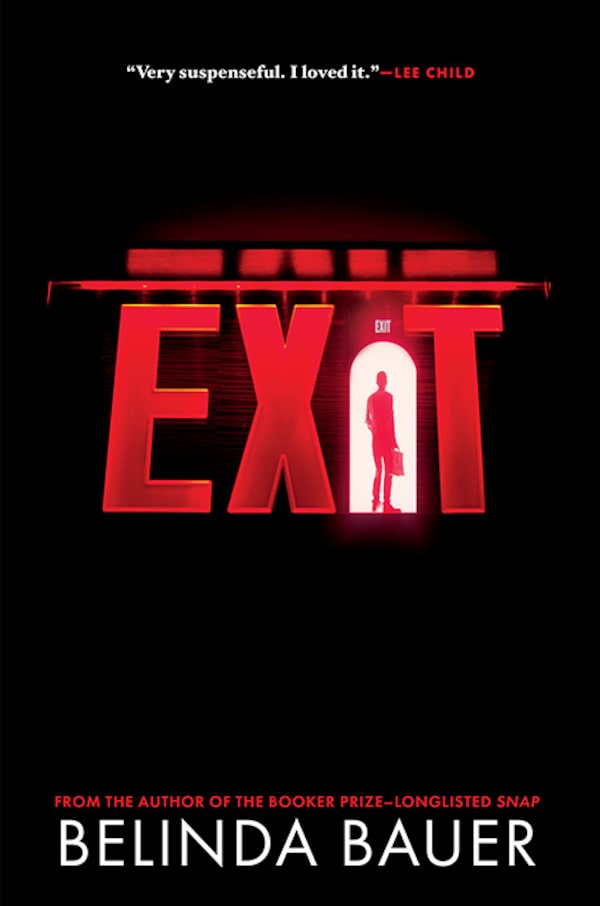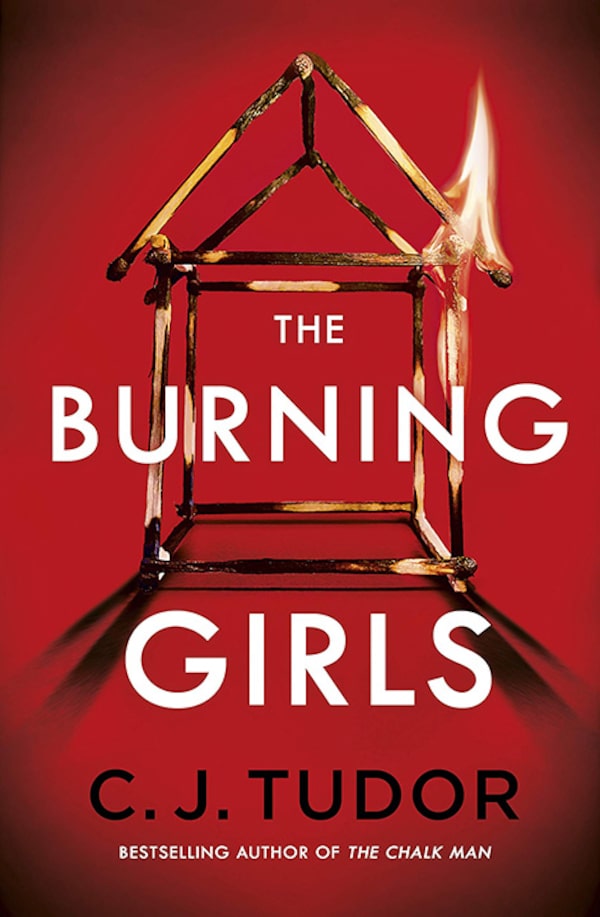Expand your mind and build your reading list with the Books newsletter. Sign up today.
The Conjure-Man Dies, Rudolph Fisher (HarperCollins, 304 pages)

Handout
Any true mystery fan has a short list of books they consider “perfect.” Those are the ones read and reread, recommended to friends, and kept until the pages crumble. My own list includes The Murder of Roger Ackroyd; Tinker Tailor Soldier Spy; Deadheads; and The Maltese Falcon. It also includes The Conjure-Man Dies, which was written almost 90 years ago and republished in 1992, when I first read it. Now, in an elegant new edition, this masterpiece is ready to be rediscovered by fans of good mystery, good writing, the Harlem Renaissance and Black history. In short, everyone.
The plot of Conjure-Man is both simple and complex. N’Gana Frimbo makes his living as a prognosticator. Relying both on his knowledge of psychology (he has a degree from Harvard) and an innate ability to read a client, he is famous among Harlem’s population. Then one day, a client arrives for a reading and speaks his piece; he then realizes that the Conjure-Man is not responding because he is dead.
Dr. Archer, summoned to the scene, and detective Perry Dart are the investigators and they’re convinced that Frimbo must have been murdered by one of his clients. There is a twist in the middle of the book and another at the end but that’s not what keeps us reading. Each character who arrives to be interrogated takes us into the lively world of Harlem and its intellectual and artistic centres. For a dip into a rich cultural bath, you cannot miss Fisher’s works, which include other novels, short pieces and several essays.
The real tragedy of this book is that there is only one. Dr. Archer and Detective Dart were obviously destined to return but Fisher, who was also a physician, died in 1934, of cancer, believed to be caused by his own X-ray machine. He was only 37 years old.
November Rain, Maureen Jennings (Cormorant, 355 pages)

Handout
This is the second book in the Paradise Café series featuring private investigator Charlotte Frayne and it’s even better than the first. Jennings has made the jump from Victorian Toronto to the Depression era with ease and, once again, proves that Canadian history is far from dull.
The year is 1936 and Charlotte is in charge of the detective agency. There are two cases facing her: The possible suicide of a disfigured war veteran and unrest in a local garment factory. In the case of the veteran, a police and coroner’s investigation says it was suicide but the family is unconvinced. As for the factory, there is possible Communist activity and the question there is whether workers are organizing for better wages or a better world. Charlotte gets job in the factory to follow the clues of organizers and workers. As she digs into her own cases, she’s joined by Inspector Jack Murdoch, war vet and son of our old friend William Murdoch. This transition makes perfect sense and maintains both the historical and character integrity of Jennings’ work. It also pleases fans who want to keep a beloved series alive long after the author has moved on to new times and people.
As Jack and Charlotte work together to solve their respective cases, it’s clear they’re intended to return. It’s also clear that they would make a great television series and the elegant Yannick Bisson, famous for his TV role as William, can effortlessly play his son delightfully working through Art Deco Toronto. This one is a real winner.
Cry Baby, Mark Billingham (Little, Brown, 437 pages)

Handout
Who was Tom Thorne before he became the brilliant and intuitive detective we all know? Mark Billingham has created a backstory for Thorne that is every bit as engrossing as you can expect. For me, the best prequel in the business is Endeavour, which looks at the backstory and development of Inspector Morse. Cry Baby is that good.
It’s 1996 and Sergeant Tom Thorne is called to his 17th case, a daylight abduction of a seven-year-old boy from a public park. Keiron Coyne was playing with a friend while his mother chatted and in the split second she turned away, he disappeared. His friend Josh can only say they were playing hide and seek and he couldn’t find Keiron. The only witness saw a boy walking away with a man but it’s vague and there are no leads. Thorne knows that in an abduction, time is life. He also has another reason for desperately wanting to solve this case – he is haunted by a case from his past, when he didn’t follow his instincts and someone died. His fellow coppers blame him for the mistake but no more than he blames himself.
Fans of Billingham know that depth of character means depth of story and no more so than here. Cat Coyne, Keiron’s mother is a complex woman whose husband is in prison. Could the kidnapper be connected to her ex?
Thorne, always a fascinating character in all Billingham’s books, is perfect here, flawed and angry and full of fire to get the boy back safely, but he’s also second-guessing himself because he’s insecure and young. We see the genesis of the later Thorne we’ve all grown to love and I hope this isn’t the last peek into his earlier cases.
Exit, Belinda Bauer (Grove, 336 pages)

Handout
It’s early in the year to start listing the best of 2021 but I predict that Exit will be one of the chosen. It’s a brilliant premise, beautifully written and with the wit and style remind me of the late great Reginald Hill. Belinda Bauer is one of the few crime writers nominated for a Man Booker. Exit shows you why.
Felix Pink is an “exiter” – a group that assists people who want to die. Felix is the man who arrives, assists with the process, sits at the bed as the last breath is drawn, then tidies up, getting rid of any remains that might alarm loved ones, and departs, secure that he’s done the right thing.
Then one day, something goes wrong. It’s a dreadful mistake but Felix is there, on the spot, in the glare of the authorities. What transpires from that is one of the best plots I’ve enjoyed in years. I read this one over one weekend, sustained by a friend’s super-moist bran muffins. It was almost better than bingeing a whole season of The Great Canadian Baking Show.
Should this be your first foray with Belinda Bauer, make a list. She has seven other books that are just as good. Snap and Blacklands are her award winners so you might start with those. Oh yes, I almost forgot to say that Exit is funny – how could you not be amused by a man named Felix Pink, who, incidentally, is a lot less saintly than he seems.
Downfall, Robert Rotenberg (Simon & Schuster, 320 pages)

Handout
Downfall is the sixth in Robert Rotenberg’s excellent Toronto series featuring policemen Ari Greene and Dan Kennicott. It’s sad to say but this isn’t the best of the bunch, only because Rotenberg makes a writer’s easiest mistake – he lets his heart get ahead of his pen.
The subject here is the plight of Toronto’s homeless, or really, any big city’s. Rotenberg knows them because as a criminal attorney, he represents them in court but really we all know them, as we swish past them on the sidewalk, ignore them in the park or complain about their presence in our neighbourhood. That’s the real message of Downfall.
The murder that sets the plot is a dead woman in an encampment on the Humber River. Across the river is the elite Humber golf club, which has every reason to want the shabby tent city gone. In fact, one of Humber’s wealthy members, Hodgson, killed a homeless man on club property, claiming self-defense, so naturally he’s a suspect in this murder. Then it’s revealed that Hodgson’s ex-wife is waging a custody war over their kids and she has a tendency to disappear into the homeless chaos at times.
There are a lot more dangling characters and issues in this book and some readers may find the early chapters slow going as Rotenberg, ever the attorney, outlines his people, builds his case, then hides the clues. Still, the issue is haunting and Rotenberg’s statistics are hard to ignore.
The Burning Girls, C. J. Tudor (Ballantine, 368 pages)

Handout
The first item to note about The Burning Girls is that it is not The Burning Girl, a Thorne book by Mark Billingham. This tale is set in rural Sussex and is full of creepy crawlies, dead witches and murderers, and it’s definitely the best of Tudor’s books to date, which says a lot. This is one talented author and her international reputation is well-deserved
Jack Brooks and her daughter Flo are the new people in the old town of Chapel Croft. Vicar Jack is there to serve a short time until a new vicar can be selected (the old vicar apparently hanged himself in the chapel). Flo, at 15, isn’t thrilled to be banished to the boonies but Jack has a past trauma that haunts her and, after all, she wasn’t really asked to go to Chapel Croft, she was told to go there.
Jack and Flo quickly learn that the dead vicar isn’t the only sad case in the neighbourhood. There are the two girls who disappeared 30 years ago and were never found and then there are the Burning Girls, a group of Protestant teenagers burned at the stake in the sixteenth century.
As Flo finds her way to a local bad boy who opens the door to local youth and all their vices, Jack has spectres and goblins to deal with. There are straw dollies on the lawn and creepy shadows in the churchyard and meanwhile, bodies start to drop with dreadful regularity. It seems the dead hand of the past is still dealing out penalties for the crimes of people in Chapel Croft. This is a great novel for a dark night in a snowstorm.